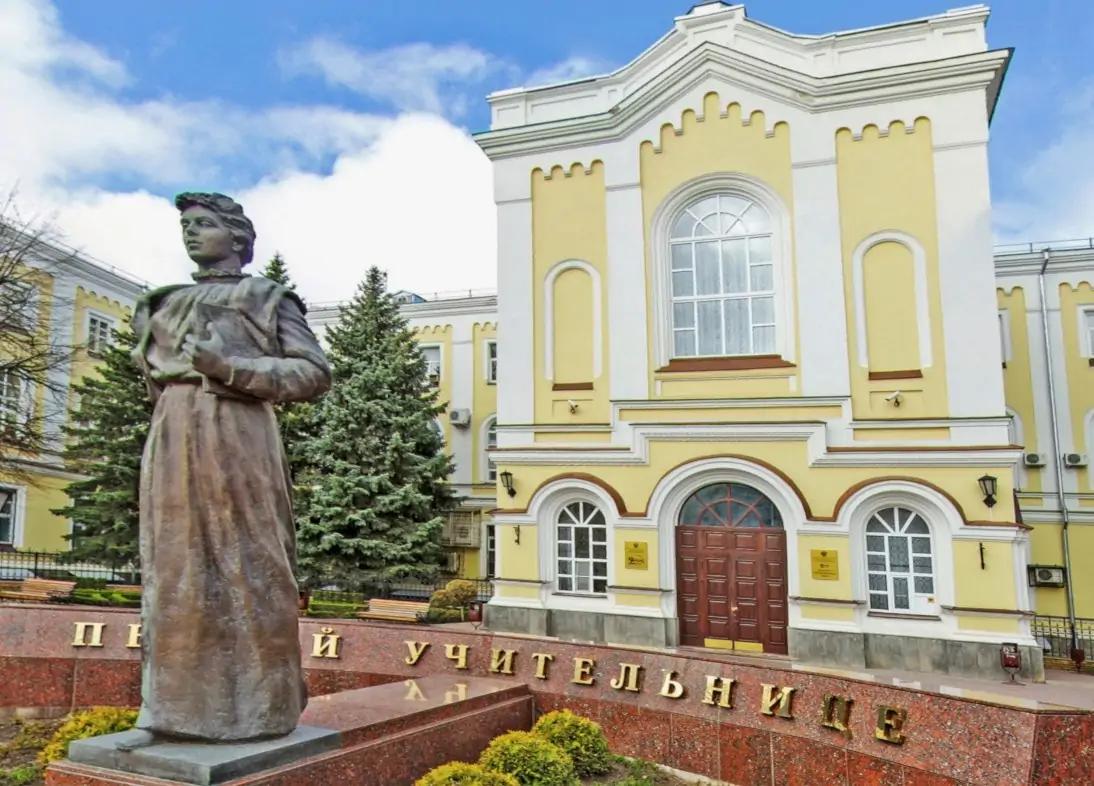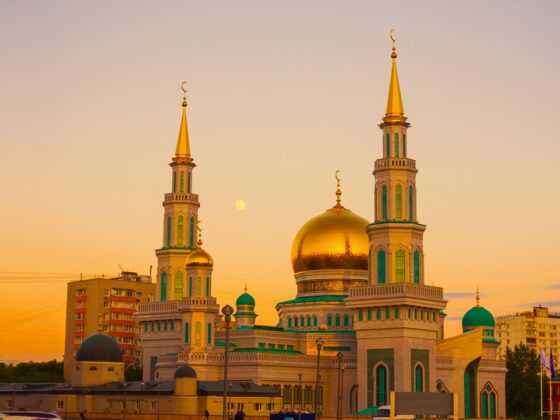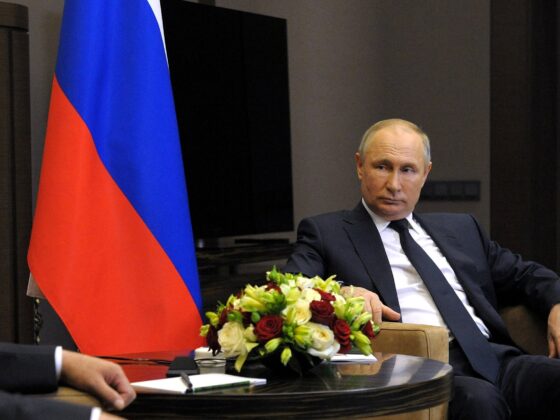How to Mitigate the Damage to Scholarship and International Security
The Russian government’s recent domestic repressions and the sudden isolation of Russian scholars from international collaborators will likely destroy Russian academic communities, particularly in the social sciences. Since the Soviet collapse, Russian social science rose virtually from scratch to become an important source of scholarly research, ties to global academic networks, and insight into the workings of Russia’s society, politics, culture, and economy. The anticipated loss of Russian social science will cut off a vital source of understanding about Russia. Therefore, although support programs for displaced scholars now (rightly) focus on assisting Ukrainian researchers and students, steps should be taken by Western governments, universities, and major donors to preserve and protect Russian social scientists in exile—not just for the short term, but until conditions in Russia change to allow social science there to resume.
The Development of Russia’s Social Science Community, 1991-2022
Soviet-era censorship, ideological rigidity, and lack of academic freedom limited the development of Russian social science during the Soviet era, detaching Russian social science disciplines from their corresponding international scientific communities. Aside from some fields in economics and anthropology, and a nascent empirical sociological tradition emphasizing survey research, Russian social science (in contrast to many natural science fields) lagged far behind globally at the time of the Soviet collapse.
Over the past three decades, some Russian academic institutions, often with the support of collaborators and donors from abroad, gained international recognition and prestige. They established graduate-level programs in the social sciences, recruited foreign scholars to train students and form collaborative research partnerships with Russian colleagues, implemented incentives to publish in prestigious peer-reviewed journals, and forged reputations abroad for Russian researchers. In the 1990s, new institutions designed to house high quality educational and research programs were founded, such as the European University of St. Petersburg (EUSP), the New Economic School, the Smolny College for Liberal Arts and Sciences, the Institute for Independent Social Research, and the Moscow School for Social Sciences (“Shaninka”).
Most successful of these was the Higher School of Economics (HSE). Initially founded in Moscow in 1992, HSE enjoyed generous government financing and strong leadership. After recruiting top-performing Russian scholars and some foreign researchers to its faculty, developing strong social science laboratories involving foreign scholars, and establishing affiliate institutions in three other cities, it is now Russia’s top-ranked university.
Russia joined the Bologna Process for streamlining educational degree programs in 2003 (though it was never fully implemented). In 2012 the Russian government announced plans to improve the international reputations of Russia’s universities by investing in a select set of institutions with the aim of placing 5 of them among the top 100 universities in the world by 2020.
Efforts to modernize Russian universities were contested, unevenly applied, and inconsistent. Within Russian universities, “old guard” faculty and administrators resisted changes in performance criteria and standards that left them unprepared to compete. Funding models relying on donations from foreign foundations in the 1990s and selective investments from the Russian government in the 2010s tended to promote excellence at a few prominent institutions, while the rest foundered. Nonetheless, successes at core institutions helped create a thriving social science community in Russia, staffed largely by a younger generation of Russian scholars committed to research excellence, high educational standards, and internationalization.
Countervailing Trend: Declining Academic Freedom
However, academic freedom, which had flourished in the 1990s and remained fairly protected in the early years of the Putin regime, came under increasing attack as Putin turned toward autocracy beginning in the late 2000s. In 2010 the Russian government established a commission against the “falsification of history” meant to impose penalties for publishing accounts of history that somehow cast Soviet actions in World War II in a negative light. The commission never really got off the ground, but it was a harbinger of more concerted efforts to bring to heel scholars who voiced critical perspectives on both contemporary and historical topics. After returning to the presidency in 2012, Putin steadily intensified a crackdown on civil liberties, with consequences for academic freedom. Laws on “foreign agents,” “undesirable organizations,” and “extremism” were offered tools to target independent research centers such as the Levada Analytical Center.
In 2015, two Russian authors opened an article by stating: “As Russian social policy analysts working in international academic networks, we are deeply alarmed about current developments in our country which make it harder and harder for us to continue with our work. We believe that if these trends cannot be stopped, Russian social scientists will become as isolated again as they were before 1989; by the same token, international scholars outside Russia might have lesser access to information about our country, or to do research here.” Others wrote of self-censorship and ethical dilemmas in conducting social science in Russia.
The assault on academic freedom accelerated in the last few years. EUSP had its license to teach suspended in 2017 (and Shaninka in 2018), ostensibly for technical reasons behind which many saw political motives to quash research and teaching critical of the regime (both were eventually restored). Since 2019, Russian authorities have ratcheted up an overt campaign to crush dissent within the academy. Students have been expelled from Russian universities for participating in protests. Universities were pressed to monitor their students’ political activities and provide lists of those who protest, or even share information about demonstrations, with prosecutors.
HSE enacted controversial measures limiting open political speech. It stripped the student journal Doxa of student organization statue, and four of its editors were eventually arrested for encouraging students to protest. In January 2020, the university enacted measures prohibiting students and faculty from engaging in certain types of political activities. Some HSE faculty had their contracts terminated in moves widely interpreted as retribution for oppositional political activities. More recently, additional HSE faculty have been dismissed for expressing critical views.
In April 2021, Putin signed a new “higher education” law requiring government approval of any collaboration by Russian scholars with foreign colleagues—even inviting them to give lectures—and banning all public educational activities that supposedly oppose Russia’s constitution or incite unrest, despite widespread public objections by Russian scientists and cultural figures. In June 2021, Bard College was declared an “undesirable organization” by the Russian prosecutor general’s office, shuttering its joint degree programs and exchanges. HSE’s founding rector resigned in July under clouds of suspicion that political pressures affecting the institution’s policies of late drove him out. Later that year, the rector of Shaninka was arrested on charges of embezzlement believed to be politically motivated; he is currently in detention.
Nails in the Coffin
Shortly after invading Ukraine, the Russian government passed laws criminalizingstatements against the war, including referring to it as a “war.” In a speech on March 16, President Vladimir Putin denounced Russians sympathetic to “the West” as a “fifth column” of “traitors” and “scum” who must be purged from Russia. The Ministry of Education announced sociology, political science, and cultural studies will no longer be taught in Russia’s pedagogical institutes. In late March, Russia forbade its scientists to attend international conferences and declared a popular science journal, Troitsky Variant, a “foreign agent” after it published a letter by scientists and science writers opposing the war, with 8,000 signatories.
That is not to say that the entire Russian academic community opposes the war: like the rest of the country, it is polarized, as the public letter of support for the invasion signed by more than 200 rectors of Russian universities attests. At the same time, thousands of Russian scientists and scholars have signed open letters protesting the war—an act now punishable with up to 15 years in prison.
The Russian academic community has not escaped international condemnation for their country’s unjustified attack on Ukraine. Ukrainian scientists have appealed for a “complete boycott of the Russian academic community.” Several countries have enforced blanket bans on academic collaborations with Russian scholars or suspended grant payments to them, and at least one university has restricted new applications from Russian students. Academic journals are refusing to consider submissions from Russian scholars and universities. A US Congressman has called for Russian students to be expelled from universities. Times Higher Education has announced “steps to ensure that Russian universities are given less prominence” in its World University Rankings. Shortly after the invasion was launched, MIT terminated its partnership with the Skolkovo Institute of Science and Technology, which it helped found in 2011. Western institutions and individual scholars rushed to follow suit, cutting formal ties with Russian universities and institutes. These measures will surely sever Russian researchers from their respective international communities, further undermining their capacity to conduct research and train students.
Numerous professors, including both Russians and foreigners, have resigned from Russian universities and left the country, often citing the end of academic freedom. Journalists estimate that 250,000 fled abroad within a few weeks, many of them academics, journalists, activists, and other professionals faced with likely persecution and isolation should they remain in Russia. Already, students are being expelled for participation in anti-war protests and anti-war posts on social media.
Scholars who remain in Russia will encounter financial, professional, and political roadblocks to conducting research that meets international standards. They will continue to face persecution for work that could be considered “political,” a label potentially applying to most social science research. Thus, genuine research in those disciplines is no longer possible.
Consequences
Signs of the pending destruction of Russian social science were evident in the last few years, but the war and its aftermath have fully brought it to pass, at the very moment that social science research on Russia was beginning to flourish, in large part due to the efforts of burgeoning younger cohorts of promising researchers. The dismantling of social science—and academic communities in general—within Russia has negative consequences for international social science and Western governments. It means losing a significant source of information on Russia and also research addressing scientific debates, including (but not limited to) studies that situate Russia within those debates. Although Western-based scholars conduct social science research on Russia, they have often relied on collaborations with Russia-based academics and students, as well as researchers at independent social research firms.
Putin’s domestic crackdown effectively blocks foreign researchers from travelling to Russia to collect data through fieldwork, archival research, interviews, and surveys. Recent innovations driven by COVID-19-related travel restrictions, such as “bridge” firms, big data analysis, and virtual interviews, may remain feasible, but the atmosphere of anti-Western extremism and criminalization of activities deemed to support Russia’s “enemies” could jeopardize Russian participants, heightening ethical issues about whether foreign social scientists should risk endangering their Russian partners and subjects. The impact of new government restrictions on social media will probably limit the utility of “big data” studies moving forward.
Western policymakers will thus lose knowledge and expertise on Russia that they need to craft policies to address the significant challenges to global security that Russian government policies will surely pose in the coming years, whatever trajectory the invasion of Ukraine and domestic politics in Russia take. Tacit knowledge about Russia’s society and culture that comes from growing up and living there cannot be fully replaced with analyses conducted from afar. While it is debatable whether academic expertise truly influences policymaking, the loss of insights into Russia based on both evidence and intuition rooted in lived experiences and ongoing contacts with its population bodes ill for the ability of policymakers to address Russia as it evolves in the coming years.
Recommended Actions
To mitigate these adverse consequences, the U.S. government, universities, and private donors should attempt to preserve Russia’s social science potential outside of Russia. The United States should make it easier for displaced graduate students and academics from Russia to get U.S. visas to study or work in their fields. For several years now, it has been exceedingly difficult for any Russian citizens, including academics and students participating in legitimate exchange programs, to obtain U.S. visas. These unnecessary obstacles have already winnowed down the number of Russian social scientists and students currently working in the United States.
The U.S. government should also extend the visas of Russian scholars and students now working or studying here under temporary auspices: forcing them to return to Russia when “pro-Western” Russians face persecution exposes them to reprisals from the state. Calls for their forcible return so that they will feel compelled to take to the streets and protest Russia’s war on Ukraine must be roundly rejected. Beyond these humanitarian concerns, these individuals also can play a vital role in establishing a base of Russian social scientists in exile.
American universities should join forces with governments and private donors on a large-scale, multifaceted effort to create and support a Russian social science diaspora. Consortium-based programs could marshal funds to establish a substantial number of medium-term academic positions in U.S. universities—for example, 5-year visiting professor positions. While these would be short of tenure-track appointments, that will improve the likelihood of buy-in from university administrators reluctant to commit to tenured positions. They would also give displaced Russian social scientists enough stability and support to re-establish their research agendas, obtain teaching experience, develop and sustain networks, engage with U.S. policymakers, and potentially compete for tenure-track positions in Western institutions.
Funding should also be channeled to support enrollments of Russian graduate students in social science Ph.D. programs in the United States, cultivating new generations of promising young scholars by offering them the chance to complete training in the disciplines. Finally, networks that link Russian social science exiles to one another should be established, with governance procedures that help coordinate activities across institutions and give expatriate scholars a voice in the development of priorities and means of accessing resources, engaging U.S. constituencies, and maintaining ties with colleagues in Russia.
Conclusions
These proposed measures may be criticized as potentially diverting resources from the pressing need to assist Ukrainian students and scholars who have been displaced by Russia’s violent assault, rewarding some Russian social scientists who have provided Putin’s regime with ideological ammunition, or reifying a long-term bias within Eurasian area studies that privileges Russia above other former Soviet and Eastern-bloc countries. These are fair criticisms, but they can be addressed.
To begin, the proposed programs should be open to all scholars that have been affected by the war, including Ukrainians. Stakeholders should agree on a set of professional and political criteria that Russian participants in these programs should meet in order to avoid supporting apologists for the regime. Although political litmus tests run contrary to academic freedom, it is reasonable to exclude open advocates for Russia’s war effort from consideration in these programs, just as Holocaust deniers and avowed racists are not welcome in U.S. university positions. Apologists for the Putin regime generally lack international scientific reputations, so strict academic criteria will help remove them from consideration.
In the longer run, Russia—with its 145 million people, vast nuclear arsenal, and massive hydrocarbon reserves—will remain a major geopolitical player and rival to the West. Therefore, the West should be considering measures to help counter not only Putin’s vicious assault on Ukraine but also Russia’s broader strategic efforts to undermine the international order. As roadblocks to social science research in Russia become insurmountable, the stock of “insider” knowledge about Russia that we have now must be protected and preserved, not alienated and discarded when it is needed the most.
Theodore Gerber is Professor of Sociology at the University of Wisconsin-Madison.
Hannah Chapman is Assistant Professor of Political Science at Miami University, Ohio.











